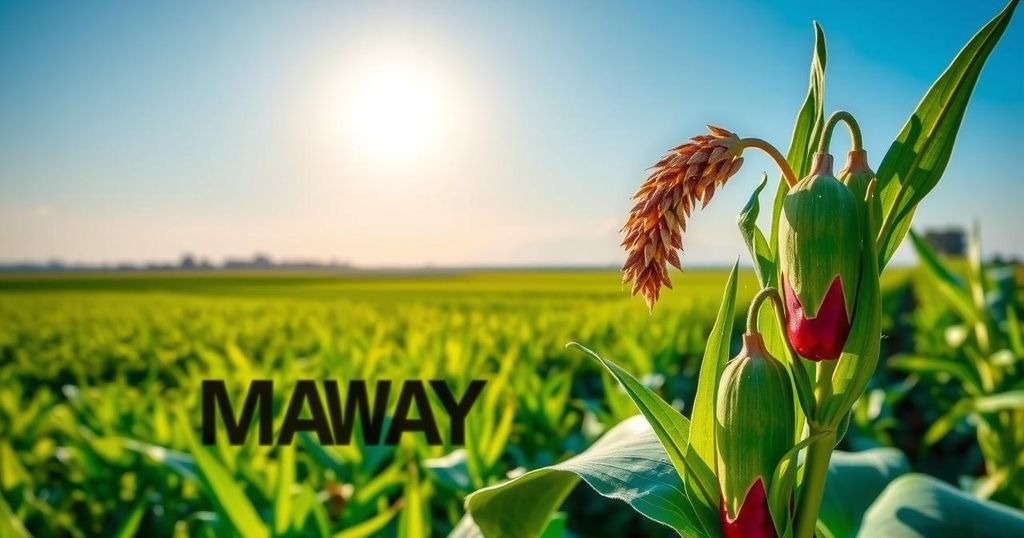Farmers in Malawi are improving crop yields through the use of fertilizers made from black soldier fly waste, developed in response to soil degradation and high fertilizer costs. Researchers are training farmers to produce the fertilizer sustainably, which promises to enhance food security and reduce environmental damage associated with synthetic options.
Farmers in Malawi are now utilizing fertilizers derived from the waste of black soldier flies to enhance their crop yields. This innovative fertilizer has been developed as a sustainable solution to counteract soil degradation and the high costs associated with chemical fertilizers. Furthermore, researchers are equipping farmers with the necessary skills to produce this fertilizer independently, facilitating long-term sustainability in agricultural practices.
In the Mzimba District, Fanny Ndhlovu and other farmers have witnessed a rejuvenation in their farming methods and a resurgence in their banana crop production after implementing this new fertilizer. The rising costs of chemical fertilizers have rendered them unaffordable for many small-scale farmers, while those able to purchase them struggle with diminishing productivity due to climate variability.
The project, initiated by Mzuzu University in collaboration with the Science Granting Councils Initiative (SGCI), aims to develop effective alternatives to synthetic fertilizers. The fertilizer utilizes a mixture of black soldier fly frass, rice husk biochar, and coffee grounds, and its components undergo laboratory testing to assess their properties before being processed for use.
Lead researcher Elija Wanda emphasizes the project’s goal of tackling soil degradation, which currently affects 40% of Malawi’s agricultural land. He asserts that a sustainable alternative is necessary to mitigate the adverse environmental effects associated with synthetic fertilizers, including greenhouse gas emissions and water pollution. Soil degradation is resulting in an annual loss of approximately 2.3 million metric tons of maize, crucial for the nation’s food security.
To address these challenges, the initiative has focused on the training of farmers in both the production and application of organic fertilizers. Following training, Ndhlovu and her peers have been instrumental in disseminating the newfound knowledge throughout their community.
Despite initial investment costs for establishing black soldier fly farms, many smallholder farmers who have adopted this technology report increased agricultural productivity and improved livelihoods. Wanda notes that this farming method can be executed even in small backyards and holds significant potential for transforming agriculture in Malawi.
In summary, the introduction of black soldier fly waste-based fertilizers in Malawi marks a significant advancement for local farmers facing challenges in soil health and rising fertilizer costs. By enhancing agricultural productivity through sustainable practices, this initiative not only improves food security but also offers a viable alternative to environmentally harmful fertilizers. Continued training and support for local farmers could further amplify these benefits across the region.
Original Source: www.scidev.net






